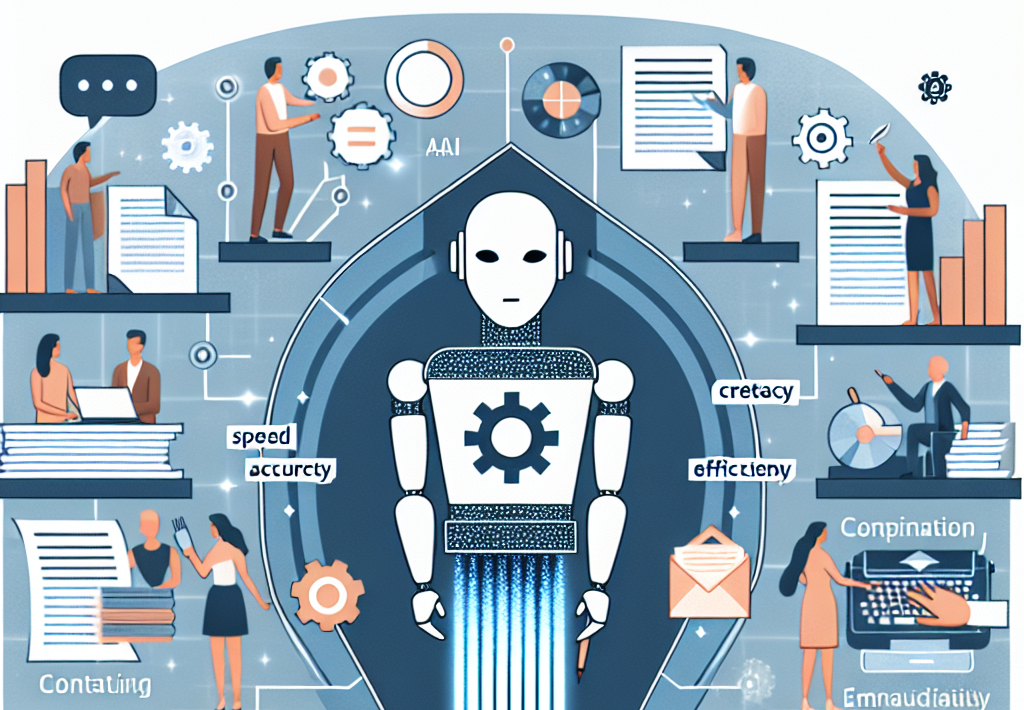AI and the Future of Content Creation: Benefits You Can't Ignore

In the rapidly evolving digital age, artificial intelligence (AI) has become a game-changer in various fields, including content creation. This blog will explore how AI can save time, the accuracy of AI-generated content, and the limitations of using AI for writing.
How AI Tools Can Save Time in Content Creation
One of the most significant advantages of AI in content creation is the time-saving aspect. Traditional content creation involves brainstorming, drafting, editing, and proofreading, all of which can be time-consuming. Here’s how AI tools streamline this process:
- Rapid Idea Generation: AI can quickly generate ideas based on given prompts, eliminating the need for extensive brainstorming sessions. For example, tools like Jasper, ChatGPT and PopAi can provide multiple topic suggestions within seconds.
- Efficient Research: AI tools can scan vast amounts of data to find relevant information, thus speeding up the research phase. They can summarize articles, extract key points, and even provide citations, saving hours of manual research.
- Automated Writing: AI can draft entire articles based on structured prompts. By inputting a topic and a few key points, AI can produce well-structured content that requires minimal editing.
- Editing and Proofreading: AI-powered grammar and style checkers like Grammarly can instantly identify and correct errors, enhancing the quality of the content while saving time.
These efficiencies allow content creators to focus more on strategy and creativity rather than getting bogged down in the minutiae of writing.
The Accuracy of AI-Generated Content
Accuracy is a crucial factor when evaluating AI-generated content. Here are some insights into the precision of AI writing tools:
- Language Proficiency: Modern AI models like GPT-4o have been trained on diverse datasets, enabling them to understand and generate text with high linguistic accuracy. Integrated with the GPT-4o model, PopAi generates precise content that is both grammatically correct and contextually appropriate.
- Fact-Checking: While AI can generate accurate content, it is not infallible. AI tools may sometimes produce outdated or incorrect information. It is essential to cross-check facts and data, especially for technical or highly specialized content.
- Consistency: AI tools can maintain a consistent tone and style throughout a document, which is particularly beneficial for brand consistency. They can mimic the writing style of specific authors or adhere to predefined guidelines.
However, despite these advantages, human oversight remains crucial to ensure the accuracy and reliability of AI-generated content.
Limitations of Using AI for Writing
While AI tools offer numerous benefits, they also come with certain limitations:
- Lack of Creativity: AI can generate content based on existing data but may struggle with original thought or creativity. It often lacks the ability to produce genuinely innovative ideas or unique perspectives.
- Contextual Understanding: AI may misinterpret nuanced contexts or cultural references, leading to content that may not resonate with the intended audience. Human writers are better equipped to understand and convey complex emotions and subtleties.
- Ethical Concerns: The use of AI in content creation raises ethical questions about authorship and intellectual property. There is also the risk of AI being used to generate misleading or biased content.
- Dependence on Quality of Input: The quality of AI-generated content heavily depends on the quality of prompts and instructions provided. Vague or poorly structured prompts can result in subpar content.
Conclusion
AI has significantly transformed content creation, offering benefits like time-saving and accuracy but also presenting limitations such as a lack of creativity and ethical concerns. To maximize the potential of AI in content production, human oversight is essential to ensure quality and relevance.
Embrace the future of content creation with AI, but remember to use it as a tool to complement, not replace, human ingenuity.
